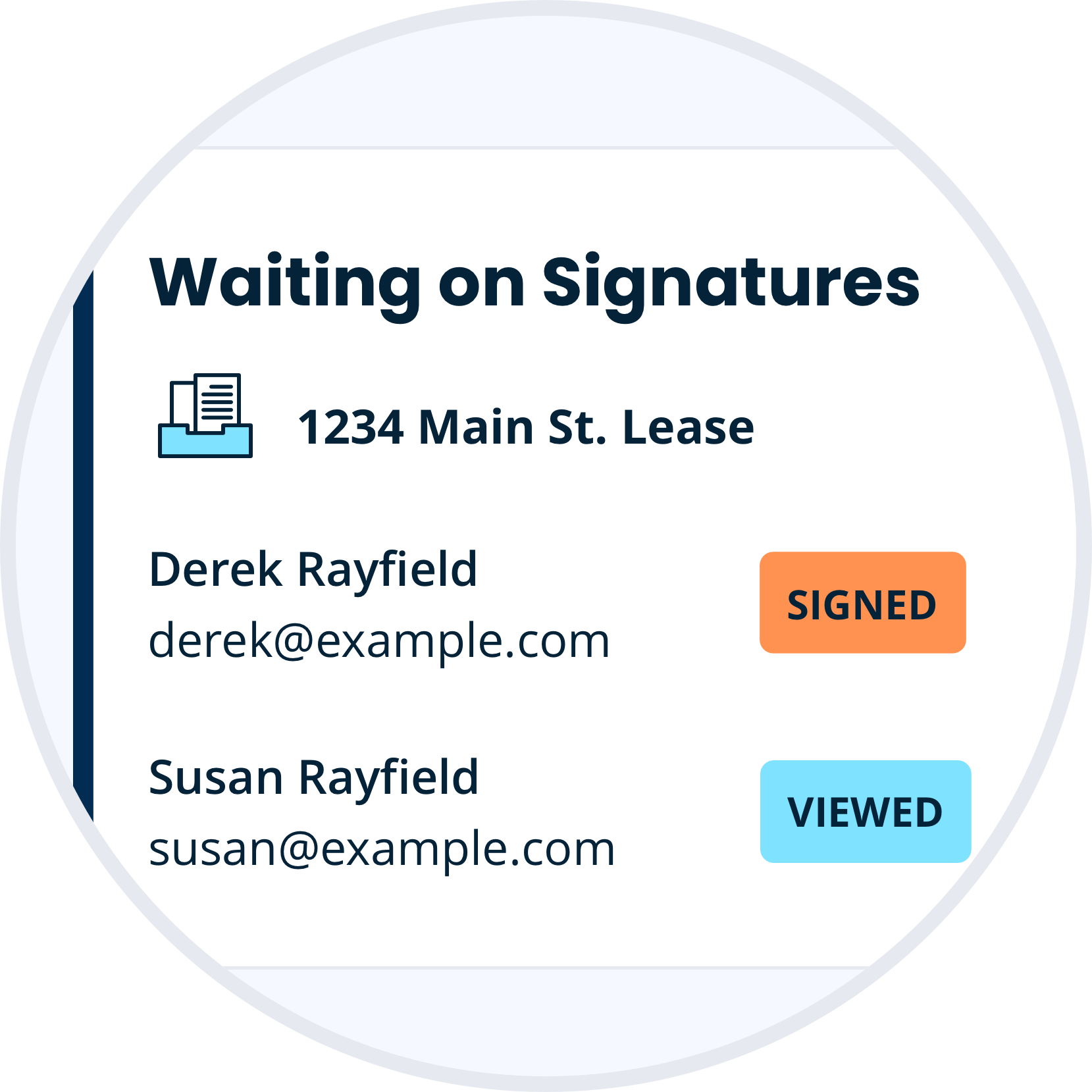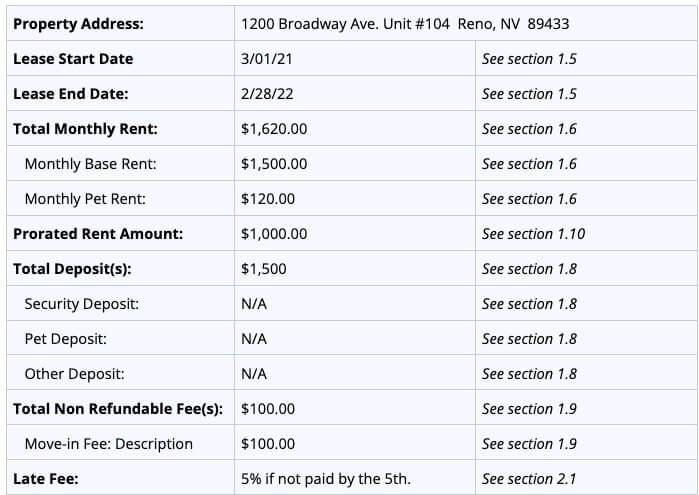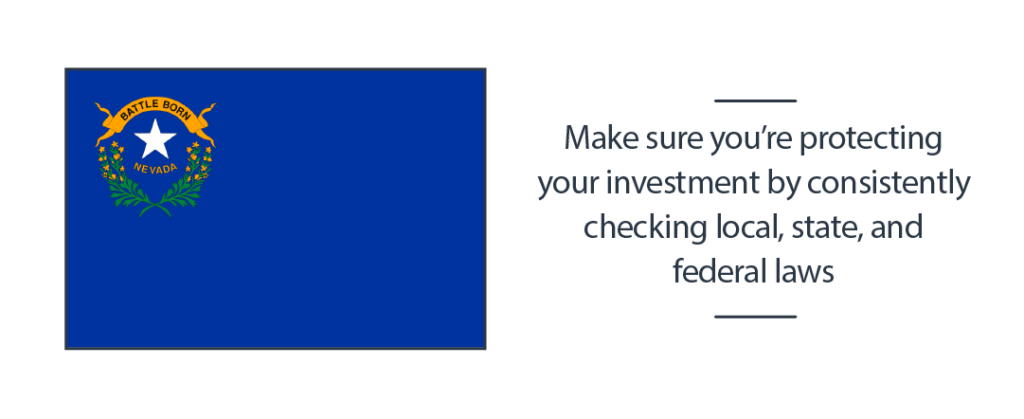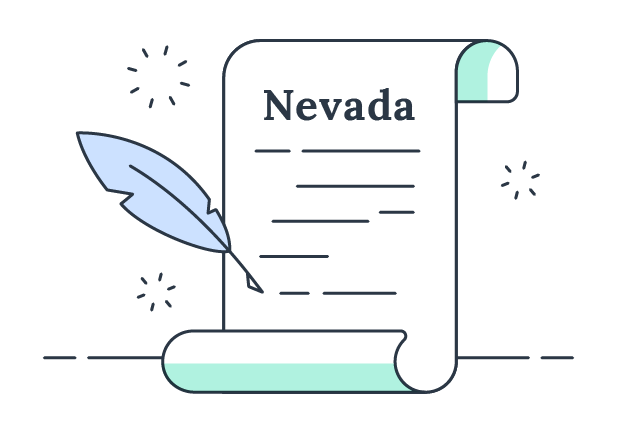While Nevada might be known for gambling and tourism, there are many other aspects that are drawing full-time residents. Nevada has something for every type of person. In Las Vegas, you get a party-centric environment and fantastic entertainment. Venture outside of the city, though, and you have access to beautiful landscapes and 300+ days of sunshine a year, which is perfect for all outdoor enthusiasts. When you factor in why people are moving to Nevada and how landlord-friendly the state is, investing in rental properties here is a great idea.
Laws that impact the rental market, landlords, and tenants are constantly being decided in states. Make sure you know what’s on your ballot – here you can find Nevada voting information.

Nevada Tenants’ Rights and Landlord Responsibilities
- Security deposit may not exceed the same value of one month of rent
- Must provide 24-hour notice before entering
- Must give a 45-day notice before raising rent
- Tenants are able to withhold rent under specific circumstances
- Landlords have 48 hours to make repairs
When it comes to Nevada rental laws, there are a few specifics landlords need to know:
- Security Deposits – Nevada does not allow landlords to charge over the equivalent of one month’s rent for the security deposit. Landlords must return the security deposit within 30-days of the tenant moving out of the rental property.
- Notice of Entry – Landlords must provide tenants a 24-hour notice before entering a property, even if they are entering to make repairs. The only exception to this rule is in case of an emergency.
- Raising Rent – If a landlord decides to raise the rent, they must give renters a 45-day notice. For renters who are renting on a month-to-month basis, the landlord only needs to provide a 15-day notice.
- Withholding Rent – If a landlord fails to provide necessary repairs, a tenant may pay for the repairs and take the cost out of their next rent payment.
- Repairs – Nevada law requires landlords to make repairs within 48-hours of being notified by the tenant.
Nevada Landlords’ Rights and Tenant Responsibilities
- Tenants have five days to pay overdue rent before landlords are able to file for eviction
- Late fees cannot exceed 5% of rent
- Tenants have 30 days to claim abandoned property
- Tenants are expected to use all appliances in the manner in which they are meant to be used
- Late Fees – Landlords must disclose late fees in the lease agreement. The fee cannot exceed 5% of the rent payment.
- Eviction – If a tenant fails to pay rent on time, the landlord must give them a written notice and five days to complete the payment. If the tenant still does not make the payment, the landlord may file for eviction.
- Abandoned Property – If a tenant leaves behind personal property after moving out, the landlord must store it for at least 30-days. After this period, the landlord may dispose of the property however they see fit.
- Tenant to Maintain Property – Tenants are required to keep the property and plumbing fixtures clean. They must use all appliances in the way they are intended to be used and must conduct themselves in a way that will not disturb neighbors.
Criminal Background Check
HUD (Federal) laws do not classify criminal backgrounds as a protected class, but making a decision to rent based off a criminal background alone could lead to a discrimination charge as it impacts certain protected groups of people disproportionately.
However, if the criminal background check revealed a crime for the manufacture and distribution of drugs, homicide and/or stalking, denying the application is allowed.
Landlords should have a consistent and equal policy or procedure in place to follow regarding criminal background checks so as not to discriminate against one class of people over another.
HUD states that a landlord cannot ask about arrest records, only convictions, as innocent people are commonly arrested though the situation may not have resulted in a conviction.
Some municipalities may have written their own laws expanding onto what you can and cannot ask regarding criminal backgrounds during the tenant screening process.
Repairs
Landlords have 14 days to make repairs.
Security Deposit
Landlords can charge a maximum of 3 months’ rent as a security deposit.
Notice of Rent Increase
Landlords must provide at least 30 days’ notice for rent increases.
Late Rent
Tenants are entitled to a 3-day grace period, and a late charge cannot exceed 5% of the monthly rent.
Required Disclosures
- Nuisance Notice
- Right to Fly the American Flag
- Pending Foreclosure Notice
Build a Nevada lease agreement in less than 15 minutes.
Nevada Lease Agreement Sample
There are three sections to a residential lease agreement. The first section outlines the custom details of the contract, such as who’s involved and for what address. Here’s an example Nevada lease agreement listing details found in Section 1:
Nevada Landlord-Tenant Law FAQ
Below are brief answers for some of the most commonly-asked questions when it comes to landlord-tenant law in Nevada.
Can You Withhold Rent in Nevada?
Yes, tenants may withhold rent under the repair and deduct statute. This statute states that if a landlord does not make repairs within 48-hours of being notified, the tenant may pay to have the repairs done and deduct the cost from their next rent payment.
How Long Does it Take to Evict a Tenant in Nevada?
A landlord may evict a tenant for a few different reasons including violating the lease or not paying rent. For a failure to pay rent, a landlord must give the tenant a written notice and five days to pay. If the tenant fails to pay rent within this time period, the landlord may file for eviction. For lease violations, the landlord must give the tenant five days to cure the violation. After this period the landlord may file for eviction.
Is Nevada a Landlord-Friendly State?
Nevada is a somewhat landlord-friendly state. They have minimal restrictions and only have to disclose some information.
What is the Eviction Process in Nevada?
Landlords must give tenants a written notice and three days to fix their violation. If the tenant does not fix it, then the landlord may file for eviction. After the landlord files the eviction, the tenant will receive a copy that would have information about the hearing. The tenant then has five days to respond with any defenses. Both the landlord and tenant must appear at the hearing where the judge will make the final determination whether or not the tenant will be evicted.
How Much Notice Does a Landlord Have to Give a Tenant to Move Out in Nevada?
A landlord is required to give a tenant a 30-day notice of lease termination but does not need to give any reason.
Due Diligence and Nevada Rental Laws
TurboTenant has utilized many municipal sources along with official state statutes in order to compile this information to the best of our ability. However, local laws are always in flux and landlords and tenants alike should be sure to do their due diligence and consult legal help when it’s needed. We hope the following list can serve as a valuable resource and allow you to succeed as a landlord or tenant in Nevada. Be sure to take proper precautions when it comes to finding the top candidates for your unit by utilizing our online rental application and tenant screening services.
Disclaimer: TurboTenant, Inc does not provide legal advice. This material has been prepared for informational purposes only. All users are advised to check all applicable local, state, and federal laws and consult legal counsel should questions arise.

Unlimited Everything.
Create a single Nevada lease agreement, or subscribe and receive unlimited lease agreements, landlord forms pack, and e-signs for a simple annual fee. Be confident with all the legal forms and tools you need as a professional landlord.
Discover Our Unlimited PlanNevada Landlord-Tenant Law Resources
Nevada Fair Housing Resources
- Discrimination in Housing; Landlord and Tenant – Chapter 118
- Tenant Rights, Laws and Protections: Nevada
- HUD in Nevada
Other State Resources
- Nevada Security Deposit Law
- Landlord-Tenant Disputes Information – Nevada State Apartment Association
Nevada Associations
Nevada City-Specific Housing Resources
Las Vegas
- Landlord and Tenant Treatises – Clark County Law Library
- Off-Campus Housing – University of Nevada Las Vegas
- Greater Las Vegas Association of REALTORS®
Henderson
- Landlord and Tenant Treatises – Clark County Law Library
- Tips For Future Residents – Henderson Police Department
- Greater Las Vegas Association of REALTORS®
Reno
Clark County Cities – Paradise, North Las Vegas, Sunrise Manor, Spring Valley, Enterprise
Sparks
Carson City
Federal Fair Housing Resources







